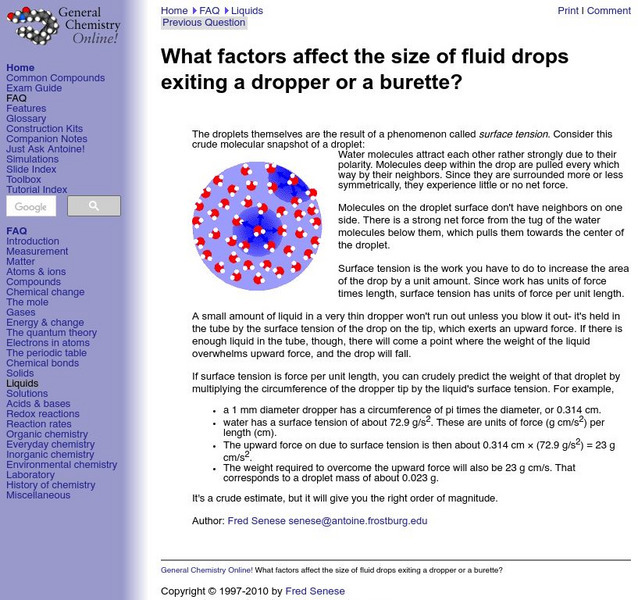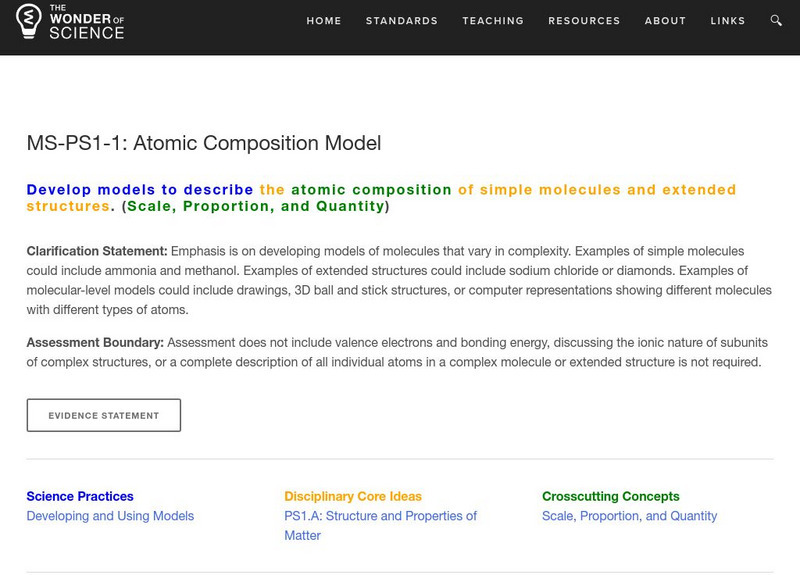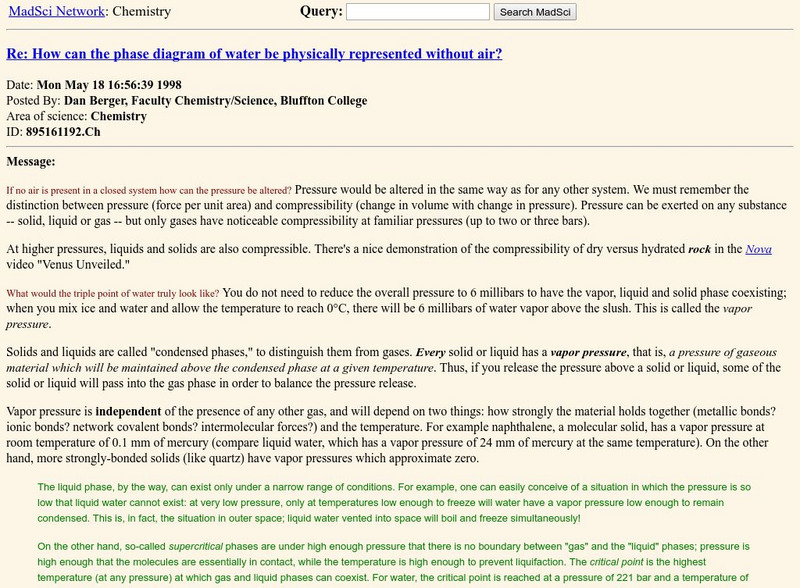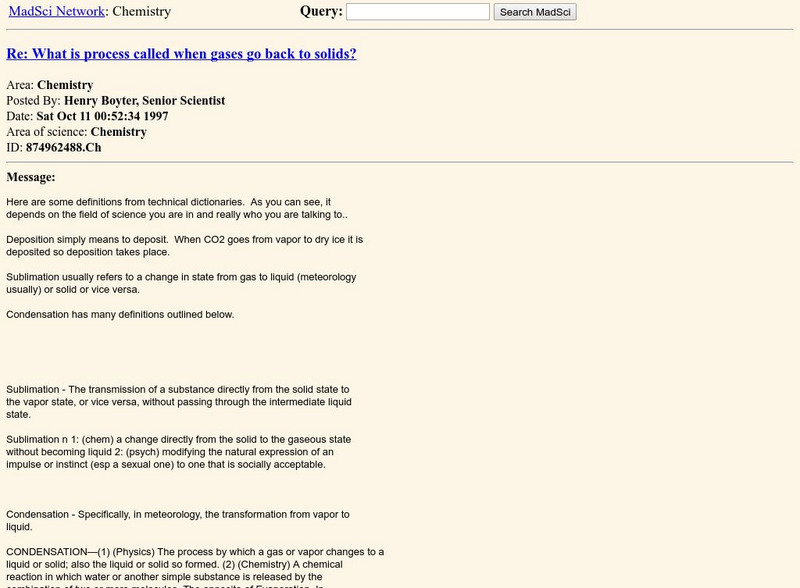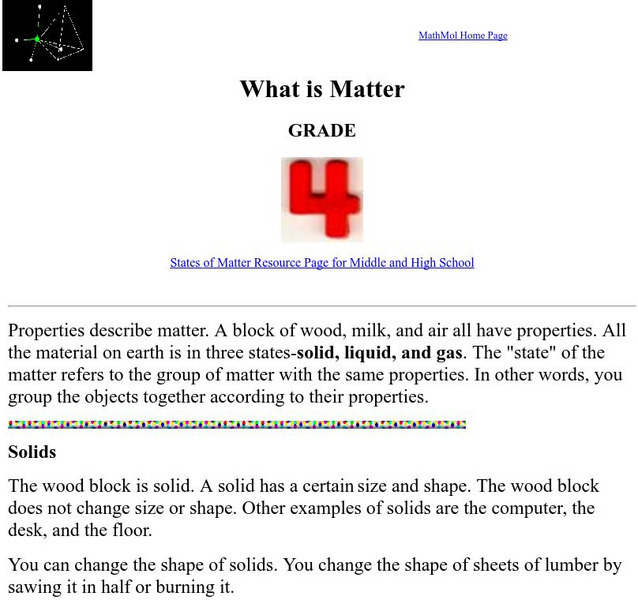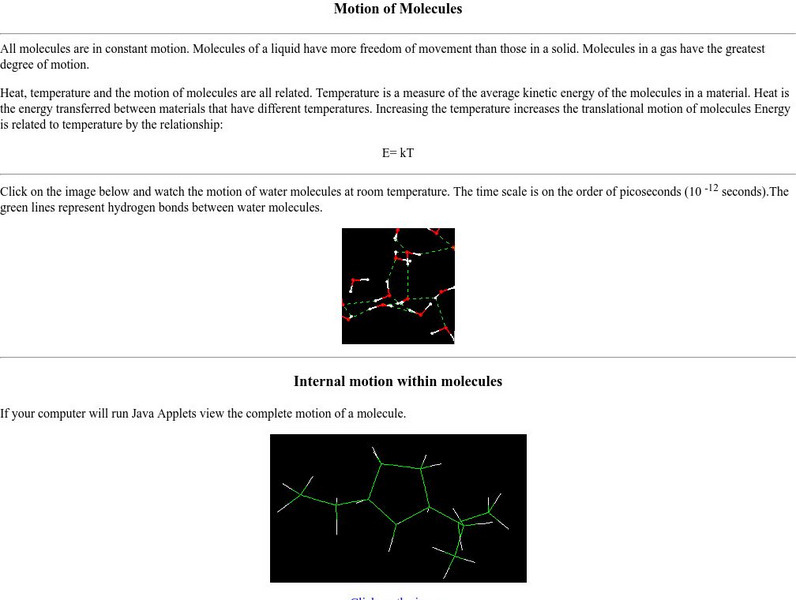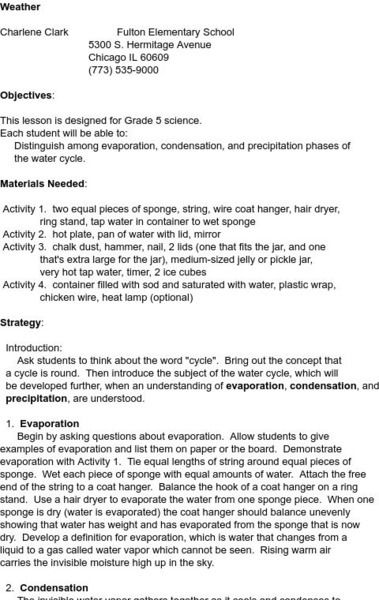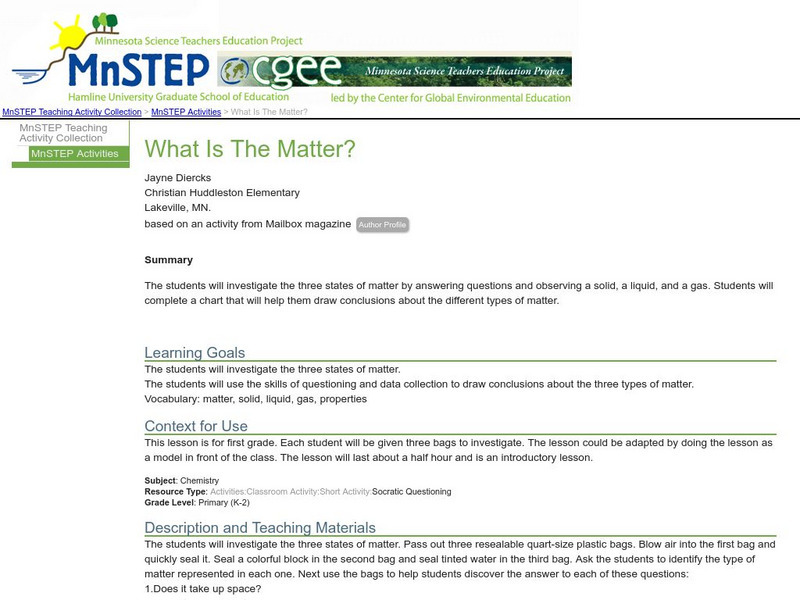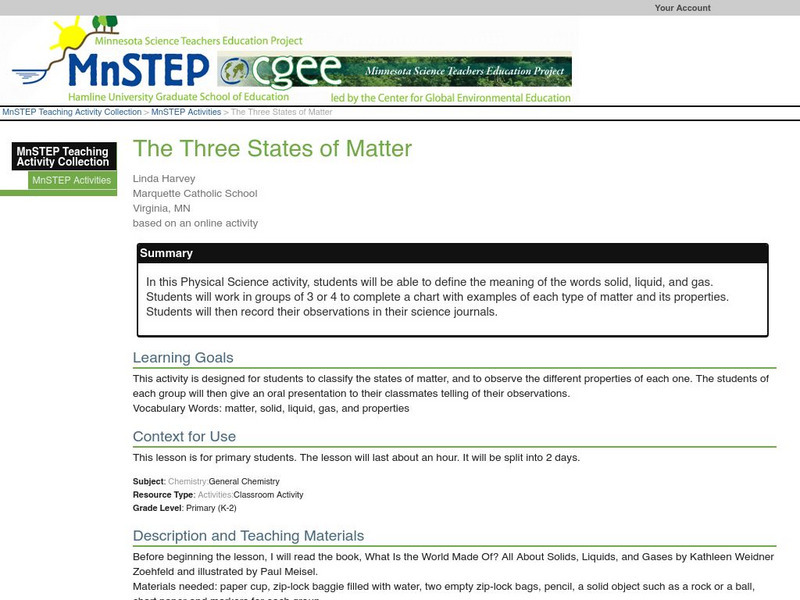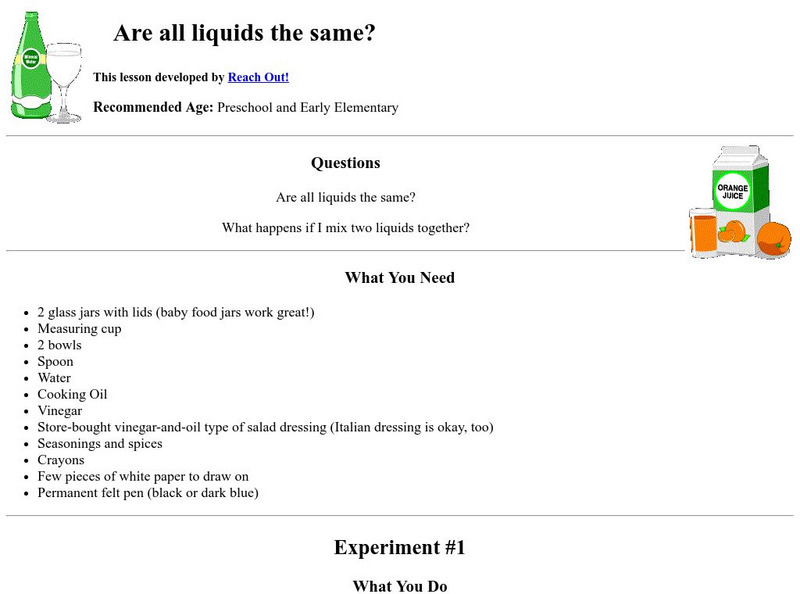Frostburg State University
Frostberg University: Surface Tension and Droplet Size
Discusses the role of surface tension in determining the size of water droplets. Explanation of why a small amount of liquid in a dropper will never run out.
Other
King's Centre for Visualization in Science: Scientific Models
A series of interactive applets use scientific models to teach some basic concepts of matter, including states of matter and physical and chemical changes.
American Chemical Society
Middle School Chemistry: Changing State: Evaporation
Learn how substances change from a liquid to a gaseous state in the process of evaporation.
The Wonder of Science
The Wonder of Science: Ms Ps1 1: Atomic Composition Model
A collection of lesson plans for helping students understand atomic composition. Site uses work samples, phenomena, assessment templates, and videos to plan lessons to describe the atomic composition of simple molecules.
Chem Tutor
Chemtutor: Heating Curve Problems
Nice set of problems dealing with the concept of a heating curve. Students can click on the question and get immediate feedback on their answer.
BBC
Bb Ci Schools: Revisewise Science: Solids, Liquids, Gases
This site contains an interactive activity in which students can learn about the three states of matter. There is also a factsheet that lists numerous properties of liquids, solids, and gases. The factsheet also uses water as an example...
CK-12 Foundation
Ck 12: Chemistry Simulation: States of Matter
[Free Registration/Login Required] Compare three states of matter: solid, liquid, and gas.
Texas Education Agency
Texas Gateway: Heating and Cooling
A tutorial reviewing the states of matter and the effects of heating and cooling matter in the different states. (Note: some of the links may not load in the archived version of the site.)
Concord Consortium
Concord Consortium: Diffusion of a Drop
Explore the effect of temperature on diffusion.
ABCya
Ab Cya: Hydro Logic
Hydro Logic is a splashy puzzle game that teaches the Water Cycle, also known as the Hydrologic Cycle! Navigate our wet little friend Enki to the goal in each level. Enki is liquid at room temperature, but can transform into gas and...
MadSci Network
The Mad Scientist Network: Chemistry
The question: "What would the triple point of water truly look like?" is discussed and explained. The phases of matter are described.
MadSci Network
The Mad Scientist Network: Chemistry
The question "What is process called when gases go back to solids?" is discussed in detail. A comparison of the processes of sublimation, deposition and condensation is made.
New York University
New York University: What Is Matter?
At this resource discover the difference between solids, liquids, and gases. Practice what you just learned with included review questions.
New York University
New York University: States of Water
Use this resource to learn about the three different phases of water; solid, liquid, and gas. What happens to water as it changes into a solid or gas? Includes short and easy to do activity.
New York University
Nyu: Math Mol: Motion of Molecules
Examine the link between molecular motion and energy. Observe the movement of a molecule at room temperature. Learn about the different types of molecular motion.
Science and Mathematics Initiative for Learning Enhancement (SMILE)
Smile: Weather
This lesson plan focuses on teaching students to distinguish among the evaporation, condensation,and precipitation phases of the water cycle.
Science Education Resource Center at Carleton College
Serc: Mn Step: What Is the Matter?
Students will examine a solid, a liquid, and a gas to gather information and draw conclusions about the three states of matter.
Science Education Resource Center at Carleton College
Serc: Mn Step: Solids and Liquids Stations
A description of a lesson where students navigate through twelve stations on solids and liquids and record their observations in a booklet. The station topics are listed, but the recording booklet materials were purchased from...
Science Education Resource Center at Carleton College
Serc: The Three States of Matter
In this Physical Science exploration activity, students explore the meaning of the words solid, liquid, and gas. Student groups complete a chart with examples of each type of matter and its properties and then record their observations...
Michigan Reach Out
Reach Out Michigan: Are All Liquids the Same
This experiment demonstrates the density of selected liquids.
Wikimedia
Wikipedia: Alloy
This site from the Encyclopedia Wikipedia provides the definition of the term, "Alloy," and then offers hyperlinks to special alloys. The information is very brief, but factual, and worth checking out on the subject.
Science for Kids
Science Kids: Science Quizzes: States of Matter Quiz
A ten-question quiz to check knowledge about states of matter.
Museum of Science
The Atom's Family: Phases of Matter
Help the Phantom choose a material and observe the changes at different temperatures in the molecule chamber. What happens to the elements or molecules as the temperature changes?
PBS
Pbs Teachers: Water Density
Demonstrate the effect that dissolving different amounts of salt in water has on the density of the liquid.


